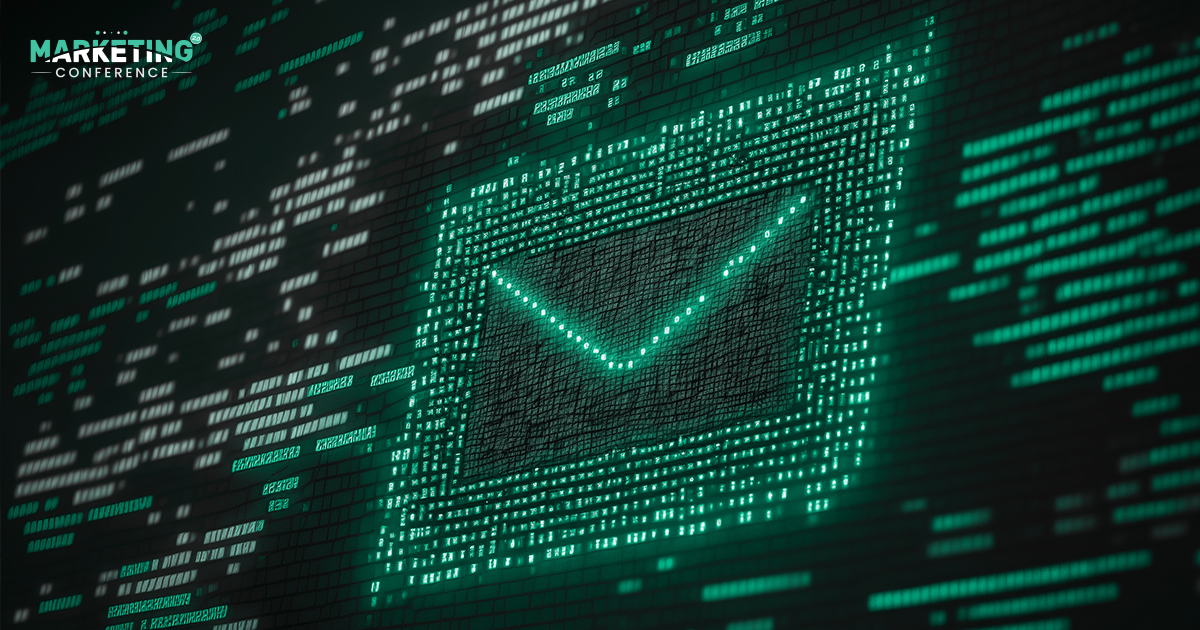
In today's digital landscape, email marketing has become an indispensable tool for businesses. It allows businesses to connect and communicate with their customers. Of course, it has its benefits, but email marketing also presents a substantial threat – Phishing scams.
These scam attempts not only jeopardize customer trust but also spoil a company's reputation. As a savvy marketer, it's crucial to understand the fundamentals of phishing scams. You must know how to implement effective strategies to protect your customer's trust.
In this blog, we share insights from the Marketing 2.0 Conference to help you fortify your email marketing against phishing threats. Hang tight as we take you through legit strategies to secure yourself from phishing attempts!
Understanding Phishing Scams
Phishing scams have become a prevailing threat in the digital landscape. They impact various sectors, with email marketing being a prime target. Businesses increasingly rely on email campaigns to engage customers. As a consequence, they open up opportunities for cybercriminals to exploit. Understanding the intricacies of phishing scams is the first step toward building a strong defense mechanism.
- Evolution Of Phishing Scams
Phishing scams have evolved significantly. From generic emails with spelling mistakes to well-crafted messages, scam acts today are almost indistinguishable from legit communications. These emails often imitate reputable brands, making it challenging for recipients to identify them as scams.
- Common Phishing Techniques
Cybercriminals employ various tactics to deceive recipients. Experts from top marketing conferences review three common scam methods:
- Spoofing
The sender's email address is manipulated to resemble a genuine source.
- Spear Phishing
This is another targeted approach where attackers gather personal information about recipients to tailor convincing messages.
- Clone Phishing
This method involves duplicating a legitimate email but replacing links or attachments with malicious content.
- Spoofing
- Psychology Of Phishing
Phishing scams exploit the psychological triggers of readers. Urgency, fear, curiosity, and greed are among a few that compel recipients to take hasty actions. Understanding these tactics helps customers and businesses become more vigilant.
Implications Of Phishing Scams: Compromising Customer Trust
Scam activities don't just harm individuals; they have far-reaching consequences. Many sales and marketing conferences, like the Marketing 2.0 Conference, share insights about how phishing scams impact companies.
- Erosion Of Trust
When customers fall victim to phishing scams, they experience a breach of trust. They may become concerned about engaging with future email communications, even if they are legitimate. This weakening of trust can negatively impact brand reputation.
- Financial And Data Loss
Phishing scams often lead to financial losses for individuals who become their victims. They might unknowingly provide sensitive information to cybercriminals. Additionally, data breaches resulting from successful phishing attacks can compromise customer data. This can lead to legal and financial repercussions for businesses.
- Reputation Damage
A single successful phishing scam can spoil a brand's reputation. Customers who experience phishing-related issues might share their negative experiences with others. As a result, others might avoid engaging with the brand's email communications.

Strategies For Mitigating Phishing Risks In Email Marketing
The battle against phishing scams requires a multi-faceted approach. It should involve both technological solutions and user awareness. Implementing effective strategies can significantly reduce the risk of falling victim to these scams. Here’s what renowned sales and marketing conferences suggest for maintaining customer trust.
- Robust Email Authentication
Implement email authentication protocols like SPF (Sender Policy Framework), DKIM (DomainKeys Identified Mail), and DMARC (Domain-based Message Authentication, Reporting, and Conformance). This will help verify the authenticity of incoming emails. These protocols prevent unauthorized senders from using your domain for phishing.
- User Education
Educate your customers about phishing scams, their tactics, and how to identify suspicious emails. Regularly communicate security tips and best practices, like not clicking on links in fishy emails and verifying requests for sensitive information through alternate channels.
- Advanced Threat Protection Solutions
Invest in advanced email security solutions that utilize AI to identify and block phishing emails in real time. These solutions can identify subtle patterns that may indicate a phishing attempt.
Building And Restoring Customer Trust After A Phishing Incident
Even with robust preventive measures, there is no guarantee that a phishing attack won't succeed. In the event of a successful scam attack, businesses must have a clear plan in place to rebuild customer trust and minimize the long-term impact on their brand. Below are some tips suggested by experts at top marketing conferences.
- Prompt Communication
If a phishing incident occurs, communicate transparently with your customers. Inform them about the incident, the steps you are taking to address it, and the measures they should take to protect themselves.
- Assistance And Support
Provide resources and support to customers who may have been affected by the phishing attack. This could involve helping them secure their accounts, offering credit monitoring services, or assisting them in changing compromised passwords.
- Reinforce Security Measures
After an incident, reevaluate and strengthen your security measures. Conduct thorough reviews of the attack, identify vulnerabilities that were exploited, and take action to prevent similar incidents in the future.
- Rebuilding Reputation
Rebuilding trust takes time. Consistently deliver value to your customers through your email communications. Consider offering educational content about online security to showcase your commitment to their well-being.
Conclusion
Protecting customer trust in email marketing is a multifaceted endeavor. It requires a deep understanding of phishing scams, their implications, and effective countermeasures. By comprehensively addressing these aspects, businesses can create a safer online environment for their customers. It can also help them build inclusive and intuitive customer experiences.
Experts at the Marketing 2.0 Conference offer a unique perspective to build a defense against phishing scams in email marketing. Being one of the leading marketing conferences today, it is the perfect platform to connect with fellow marketers to share ideas over united marketing ideas!

